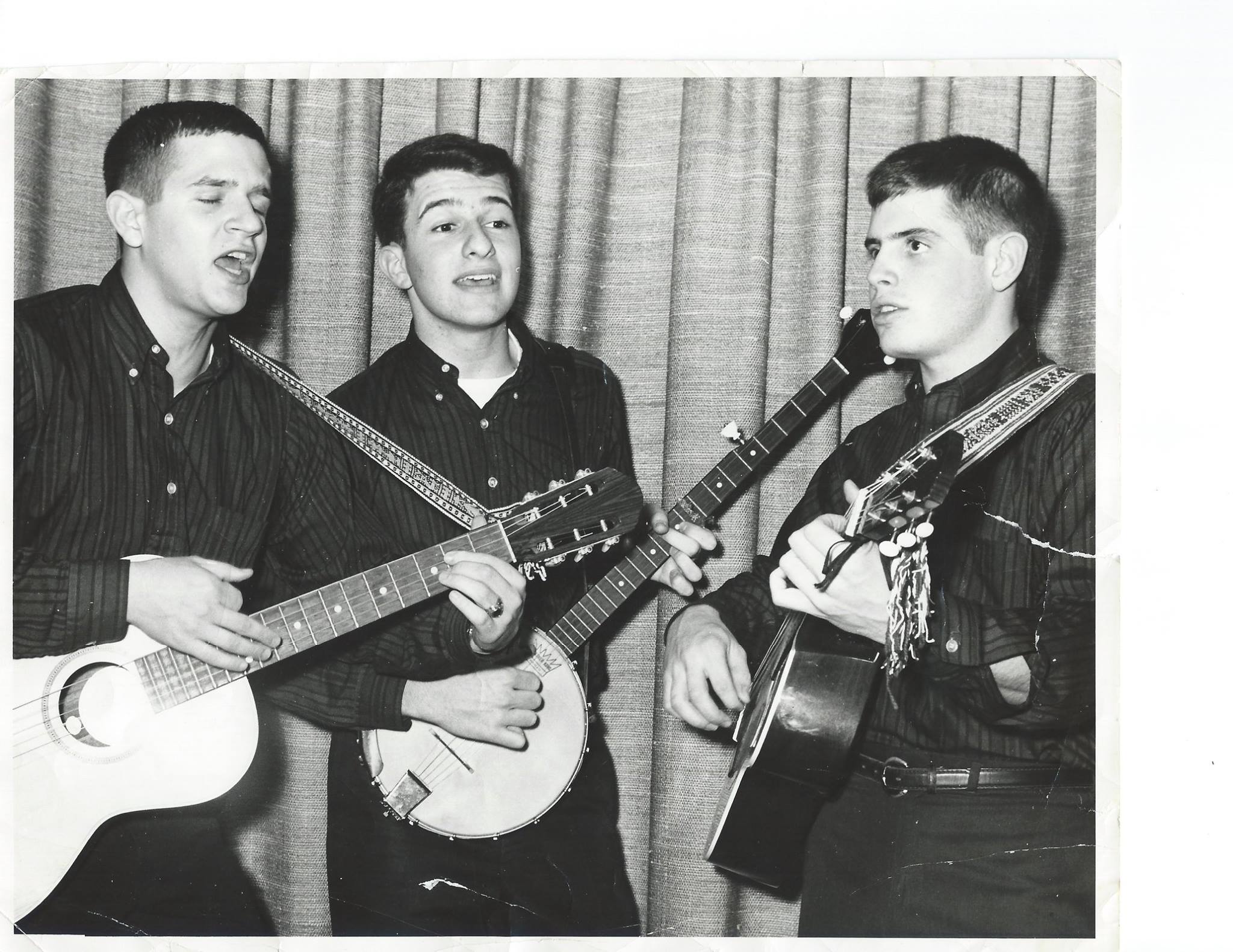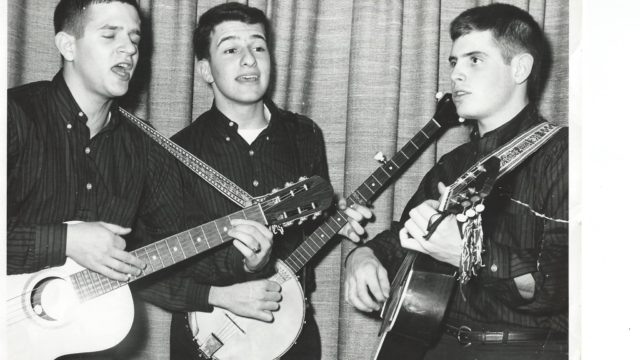By Skye Zentz
“He could sing all night! Lord, he must’ve known a million songs and he made ya feel alright- ’til you knew you had to sing along.”
These words could have easily been written about my father, local folk scene groundbreaker, Bob Zentz- but they’re actually HIS words. Plucked from his original song “Picker and a Grinner,” an ode to his folk mentor William “Ramblin’ Conrad” Buhler, the lyrics capture the essence of the man; an obscure, small town personality with a history of misadventures and hard times. A misunderstood “drunk-tank poet” with a heart of gold who let the music anchor him. An inspiration to a young man searching for authenticity in a music world of artifice and glamour.
On August 10, Bob Zentz & Friends will celebrate the 50-year anniversary of Bob’s introduction to the legendary Ramblin’ Conrad, and the community that grew from his legacy.
On a misty night in December, 1965, 21-year-old Bob and his friends were returning home after playing a holiday concert on the Naval Base when they noticed a haggard looking fellow walking down Hampton Boulevard with an old guitar slung over his back. They pulled over, asked him whether he could play the thing- and Ramblin’ Conrad didn’t bat an eye. He swung the guitar around and played them “St. Bride’s Blues,” right there on the side of the road. Awed, the boys decided to spend the rest of the evening with the old timer.
Bob ran home to grab a tape recorder so he could document this chance encounter with this man who felt like an undiscovered gem to him. The boys spent the evening at the West Side Laundromat where Conrad played songs and told stories well into the wee hours of the morning. Bob was struck by Conrad’s raw talent and gritty charm. With the help of some local connections, he found Conrad a gig the following night at “The Upstairs” in Virginia Beach. On the next evening, when Bob arrived to pick up his new friend, he wasn’t at home. His landlady informed Bob that Conrad “probably got picked up by the cops and thrown in the drunk tank; that happens quite a bit.” Instead of cancelling Conrad’s gig, Bob took the tape of the Laundromat sessions from the night before, played it at the venue and passed a hat around, collecting just enough money to bail the wayfaring stranger out of jail. Bob saw Conrad as a friend and a teacher, and he wanted to make sure that his unlikely hero could share his gifts with a wider audience.
Over the next year, with Bob’s help, Conrad started making quite a local name for himself. He performed on the Dick Lamb television show, did a concert at the Old Dominion college library and was written up in the paper. Bob joined the Coast Guard where he unofficially studied the folk music of whale sounds and later moved to California where was hired as a writer for Smothers Brothers television show. Conrad passed away at the VA Hospital in May of 1971, only a few months before Bob moved back to Virginia.
Bob went on to open a local music store and folklore center, which he named after his old friend. Ramblin’ Conrad’s first opened its ODU location on Hampton Boulevard in 1972, creating a hub for local folk enthusiasts to gather, take lessons, and hear intimate concerts from local and international folk musicians. In the early ‘80s, the shop moved to Military Highway and opened a kiosk at Waterside.
I spent the better part of my first decade hanging out at the Military Highway location. I was your typical only-child of two folk musicians, and spent my evenings plucking a kid size guitar, blowing a tin whistle or more regularly playing with some other folkie’s kid who, like me, was way more fascinated with Dinosaurs or Mad Libs. At the time, I was quite underwhelmed by folk music. Still, even as a pop music obsessed preteen, I began to appreciate the atmosphere of the shop.
In the folk scene, people were decent and thoughtful. I got to hear songs about the Underground Railroad and the Erie Canal and recycling, while other kids my age were limited by typical top-40 subjects: Love, Sex, & Money. The traveling musicians who performed on my dad’s stage weren’t trendy, ultra-hip rock stars who were too cool to talk to you. They were regular people, telling their stories, passing on traditions. They spent the night in our combination Star Wars/computer/guest room and we ate breakfasts with them before I left for school. They gave me fun nicknames and made me feel like a cool kid even though I was the weird kid at school.
I was almost a middle schooler when the shop made its final move to 21st street in Ghent. This was at the same time that the big box music stores (Guitar Center, Mars Music, etc.) were just starting to take off. It was the beginning of the end for Ramblin’ Conrad’s, since the shop was unable to compete with the pricing that the corporate stores could offer. The shop closed in 1995. My dad kept playing music for a living, and life went on, but there was still a hole where the shop had been- a void that no other venue or music retailer in this area could ever truly fill.
On August 10, we get an opportunity to celebrate the gift of the folk tradition. “It’s a chance to relive, in song, the story of meeting Conrad and to redefine folk music for a new generation,” says Bob, who will share the stage with several special guests from the Conrad’s days and beyond, as well as the ultimate guest of honor, Conrad’s Guitar. Bob reminds us that “the whole truth of folk music is a continuous redefining of musical forms”- and taking a quick listen to the radio today, it’s clear that folk music is alive and well!
Bob Zentz’ Ramblin’ Road Show and Homemade Hootenanny
Wednesday, August 10
5 pm – 8 pm
TowneBank Fountain Park
Free & Open to the Public!
www.festevents.org





